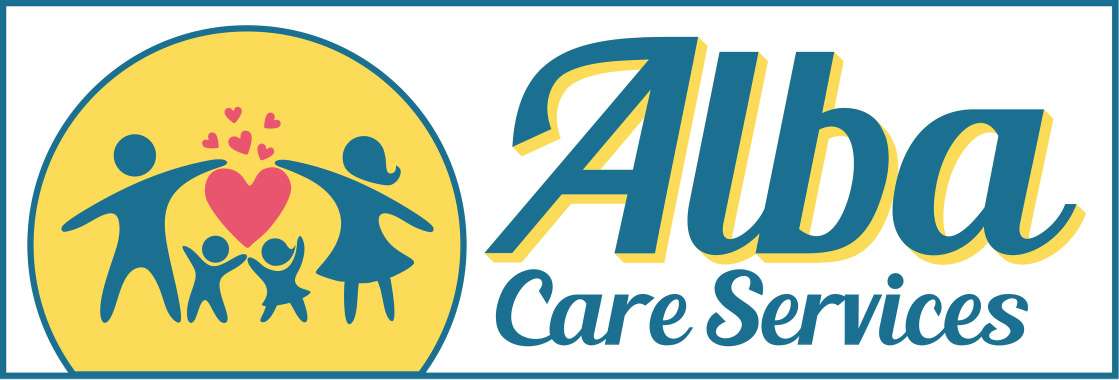Foster parenting can be an incredibly rewarding experience, but it’s also one that comes with many responsibilities. In California, being a foster parent means providing a safe and nurturing temporary home to children in need – and sometimes even facing challenging behaviors or special needs as they transition into their forever families. It’s important to consider the financial impact of becoming a foster parent; after all, even though you get more money you’re also going to be responsible for upholding certain standards for day-to-day life for these children.
So how much do foster parents get paid in California? It’s important to note that the amount of money licensed foster parents make depends on several factors, such as the age of the child, the county they live in and what type of care they require. Also, California has two different types of financial reimbursements available to foster parents: basic foster care rate payments and Specialized Foster Family Agency (SFFA) rate payments.
We’ll get into the differences between these types of foster care payments a little later in this article though. Keep reading to find out how much a foster parent can earn in California!
Overview of California’s Foster Care System and Compensation Structure
California’s foster care system plays a vital role in the lives of vulnerable children who cannot live with their families. The system provides them with a safe and nurturing environment, and many foster parents go the extra mile to give them the care they need.
The compensation structure for foster parents is designed to ensure that they can support the children in their care without financial strain. The state compensates foster parents for basic needs such as food, clothing, and shelter, while also providing additional support for extracurricular activities, transportation, and other expenses.
Basic Foster Care Rates
When it comes to basic foster care rate payments, there is a standard rate of reimbursement set by the state. This amount varies depending on the age of the child and can range from $714 per month for infants to $1,344 per month for youth 18 years or older. The county may also provide additional payments for other costs associated with caring for a foster child, such as medical expenses or special needs.
Specialized Foster Care Rates
In addition to basic foster care rates, California also offers specialized foster care rate payments for children with special needs. These can include mental health services, therapeutic counseling and other intensive supportive services. The payment amount is usually higher than the standard foster care rate and may be as high as several thousand per month per child. For children who have special needs, the amount is determined by the child’s social worker and the foster care agency.
Other Forms of Compensation
The compensation isn’t just financial… Foster parents also receive training, resources, and emotional support to help them provide the best care possible. While there are certainly challenges involved in caring for foster children, many families find it to be an immensely rewarding experience!
What is the maximum compensation for foster care?
You can earn up to $9,348 per month! This amount may vary depending on the number of children you take in and the type of care required. If you’re interested in becoming a foster parent, you should contact us at (951) 653-2224 to determine the maximum compensation available!
Eligibility Requirements for Becoming a Foster Parent in California
Becoming a foster parent in California is a rewarding experience that can positively impact the lives of children in need. However, it’s important to understand the eligibility requirements before embarking on this journey.
To become a foster parent in California, you must be at least 21 years old, pass a criminal background check, complete a home study process, attend training sessions, and have enough space in your home for a child. If you meet these requirements, you just need to get equipped with a foster care license to actually begin fostering children.
These requirements ensure that children are placed in safe and stable homes where they can thrive. While the journey to becoming a foster parent may require some effort, the impact you can have on a child’s life is immeasurable!
Calculation of Monthly Financial Support for Foster Parents in California
Fostering a child can be a rewarding experience, but it can also come with its challenges. As a foster parent, you are responsible for providing a safe and loving environment for a child who has experienced trauma or neglect.
In California, financial support is available to help offset the costs of caring for a foster child. The calculation of monthly financial support takes several factors into consideration, such as the child’s age, special needs, and any additional services required.
It’s important for prospective foster parents to understand the financial assistance available to them as they prepare to provide a stable home for a child in need.
Additional Benefits Available to Foster Parents in California
Foster parenting can be a challenging yet rewarding experience, and in California, there are additional benefits available to help support caregivers. Not only do foster parents receive financial assistance for the child’s living expenses, but they also have access to health care benefits for themselves and the children in their care.
They are also eligible for child care assistance and can participate in educational and training programs to enhance their skills as caregivers. In addition, there are special tax exemptions available to foster parents, making it easier to provide for the needs of the child.
These benefits provide a safety net for the families who open their hearts and homes to children in need, making it possible for them to provide a stable and loving environment for their foster children.
Tax Implications for Foster Parents in California
Fostering a child can be a rewarding experience, but it also comes with financial responsibilities. Foster parents in California may find themselves wondering about the tax implications of their role. Thankfully, there are specific tax laws in place to assist them.
Foster parents are eligible for tax deductions on expenses related to the care of their foster children, such as food, clothing, and medical expenses. Additionally, any income received from fostering is considered tax-free as long as it does not exceed the actual cost of care.
It’s essential for foster parents to keep detailed records of all expenses and income related to their role to ensure they receive the tax benefits they are entitled to. Understanding the tax implications can help foster parents better manage their finances and provide the best care possible for their foster children.
Resources and Support Available to Foster Parents in California
Being a foster parent is a challenging but rewarding task, and fortunately there are resources and support available to help make the journey a little bit smoother. In California, foster parents have access to a variety of services and programs that provide financial assistance, educational resources, and emotional support.
These resources can help with everything from paying for expenses like clothing and school supplies to connecting with other foster parents who understand the ins and outs of the system. Additionally, organizations like the California Foster Parent Association offer training, advocacy, and networking opportunities to help foster parents navigate the process. With the right support, foster parenting can be a fulfilling and life-changing experience for both the parents and the children they support.
Conclusion
Becoming a foster parent in California is a significant undertaking, however, with it comes great benefits and a sense of pride knowing you are making an incredible difference in the life of a child. Foster parents in California financially benefit from both the state-mandated stipend and any additional support available through private or governmental resources.
The financial amount that foster parents receive vary on a case-by-case basis so it’s important to do your research thoroughly before getting approved as a foster care provider. Additionally, while they do not necessarily translate into tangible monetary gain, there are various intangible benefits that come from being part of the system, such as privileges and training.
Ultimately, becoming a foster parent in California is more than just about money – with this role comes tremendous responsibility and devotion, but also the satisfaction of knowing you have had an extraordinary hand in shaping someone’s future.
Frequently Asked Questions
How long does it take to become a foster parent in California?
The duration of the process to become a foster parent in California may vary depending on individual circumstances. Generally, it takes about 4-6 months from start to finish for prospective foster parents to complete all of the requirements and get approved. This includes attending an orientation session, submitting paperwork, completing medical exams, participating in interviews, home visits and background checks, and completing training sessions.
What are the requirements to become a foster parent in California?
To become a foster parent in California, prospective parents must meet certain criteria. They must be at least 21 years old, have sufficient income, be willing and able to take care of children’s physical needs, provide a safe home environment, and be in good mental and physical health. Additionally, they must pass an extensive background check prior to being approved as foster parents by the child welfare system.
How much do foster parents get paid in California 2023?
Foster parents in California are typically compensated for their efforts. The amount of money they receive depends on the age, special needs, and other factors related to each child placed in their care. Currently, foster parents with basic needs may receive up to $1,154 per month for each child that meets certain criteria. Additionally, they can be reimbursed for costs related to the child’s care, such as clothing, education, health care costs, and other necessary items.
What disqualifies you from being a foster parent in California?
In California, there are several factors that may lead to disqualification from becoming a foster parent. Some of these include having a criminal record, being on parole or probation, violent behavior towards children or animals, mental health issues, and substance abuse issues.
Additionally, the state requires all potential foster parents to complete background checks and training courses prior to their approval. If any of these red flags are present, it is likely that the individual may not be approved for fostering a child in California.
What benefits do foster parents get in California?
Foster families in California receive financial assistance to help cover the cost of caring for foster children. This includes reimbursement for food, shelter, clothing and other expenses related to raising a child. Additionally, foster parents may be eligible for additional support services such as respite care, psychological evaluations, and other services that can help make their job easier.
Do you get a monthly payment when you foster a child in California?
Yes, in California, foster families receive a monthly check to help cover the costs of caring for a child. However, this amount is based on many individual factors and is not always the same each month. It is important to speak with an experienced social worker or case manager to discuss the specific details of your individual situation.
Can you choose which child you want in the foster system?
No, the child welfare system cannot guarantee that you will be able to foster the specific child or children of your choice. When possible, social workers try to match families with children in their community who have similar interests and cultural backgrounds. However, since there are many more children in need of a home than there are homes available, it is often not possible to match a family with their preferred child.
In addition, some children have specific needs and/or require special services that may not be available in the foster home or local community, so it is important to consider this as well when deciding which child you would like to foster. Ultimately, fostering is about providing a safe and loving home for eligible children when the birth parents are unable to do so.
Do foster parents get food stamps in California?
Depending on your family’s financial situation, you may be eligible for CalWORKs cash aid or food stamps (CalFresh). The California Department of Social Services has more information about financial assistance and other benefits available to foster parents.
Does Alba Care Services provide an adoption assistance program?
Yes, Alba Care Services offers an adoption assistance program for eligible families that have adopted a child from the foster care system. This program provides financial help with basic living expenses such as housing and food costs, medical coverage, counseling services and more. It is important to note that this program only applies to adoptions in California. The agency also provides resources and support to assist with the transition of adoptive families and the children who have been adopted. For more information about this program, contact Alba Care Services for details.







